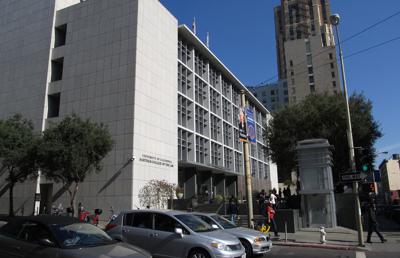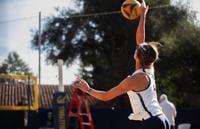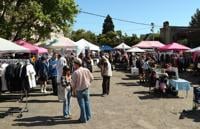Following 10 months of bargaining and five weeks of striking in 2022,United Auto Workers, or UAW, Local 2865 and 5810 secured a new contract for academic workers across all UC campuses except the University of California College of Law, San Francisco, or UC Law SF.
Although the college is touted as the “first law school of the UC system” on its website, they are an independent institution. However, their degrees are conferred by the UC, according to chief communications officer of UC Law SF John Kepley. Inspired by the gains of unionized academic workers at Berkeley Law who now make 20 to 30 times more than them, 200 UC Law SF student workers came together Tuesday to file for a union election with the California Public Employment Relations Board, or PERB, as first reported by KQED.
The teaching and resident assistants, library workers and admissions workers hope to negotiate for better and more equitable pay, according to a press release. Stephen Cosenza Jr., a legal research and writing teaching assistant, or TA, noted that UC Law SF academic workers are either paid hourly or receive a stipend, making between $3 and $9 an hour, which he states is “just woefully short of what is fair compensation.”
“At the very least, like we all just want to make sure that student workers are getting paid a consistent and equitable amount across all job classifications … that’s at least on par with minimum wage,” Cosenza said.
UC Law SF student workers hope to join their peers as a new bargaining unit of UAW, United Legal Educators. Instead of negotiating with the UC Office of the President, workers would negotiate with College negotiators for the final contact and be subject to approval by the college's board of directors, according to Kepley.
With this independence, however, comes a sense of isolation, Cosenza noted.
“If you have an issue with your working conditions, it's isolated students trying to talk to administration, generally falling on apathetic ears,” Cosenza said. “The only way we can actually really have a voice to say ‘Hey, like, this condition isn't right or this can be improved,’ and really have a change made is if we have a unified voice when we go and talk to our administration.”
Given the quick turnover of law students, Cosenza noted they needed to act fast before they lose a graduating class and would have to start over with a new one. Mikaela Gareeb, another legal research and writing TA, Cosenza and a few other organizing committee members were able to spread their effort to unionize by word of mouth, eventually gaining approval from 70% of the student worker population.
If PERB verifies the validity of the authorization cards submitted, it falls on UC Law SF to voluntarily recognize the union.On behalf of the college, Kepley said they support the right of student workers to decide whether union representation is beneficial.
“It’s thrilling to see over 70% of student workers come together to raise the standards at UC Law SF,” said Mike Miller, Director of UAW Region 6, in a press release. “As these workers join 15,000 other UAW academic workers in the Bay Area, and thousands more across the country, they are more than ready to negotiate a strong first contract.”
A previous version of this article incorrectly stated that workers would negotiate with the college's board of directors. In fact, they will negotiate with College negotiators for the final contact, subject to approval by the college's board of directors.
A previous version of this article may have implied that UC Law SF is a fully independent institution. In fact, it is independent, but degrees are conferred by the UC.













